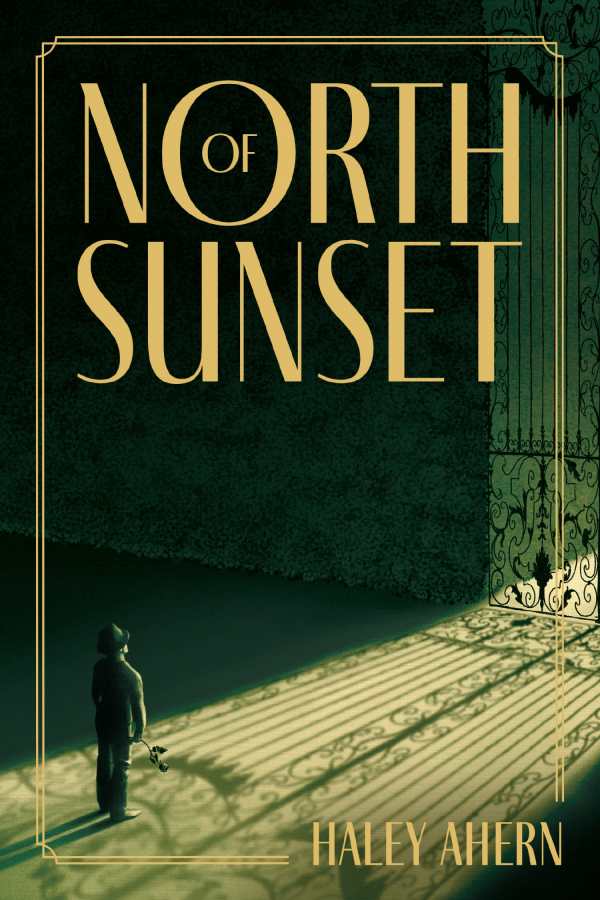North of Sunset
An inventive, fabulistic novel, North of Sunset sets a dark scientific experiment against a background of glittering opulence.
In Haley Ahern’s alluring futuristic novel North of Sunset, a young man becomes involved with a tycoon and his unusual daughter.
In 2125, Oleander, a skeptical college graduate, works on the assembly line at Fleur Industries, which makes gold-dipped roses as a luxury symbol for love that won’t die. When the factory’s owner, Mr. Fleur, offers him a role helping his daughter, Gloria, choose flowers for a new collection, Oleander accepts. What he does not know is that the technology for preserving the roses is being used in a dark, risky human experiment.
As an older Oleander recalls his youth, hinting that his encounter with the Fleur family left a deep impression, suspense builds around what happened. Throughout, his outsider status sparks tension. North of Sunset, where the Fleurs’ estate is located, exists in stark contrast to Oleander’s South of Sunset neighborhood, and as he’s chauffeured between worlds, he reflects on his painful, impoverished past.
Oleander’s job puts him into contact with curious, arcane topics too: Gloria uses floriography to communicate her moods, enhancing her rarefied world. But Oleander’s initial thoughts about the family’s aims are delayed in their development until he realizes the full details. Further, Mr. Fleur’s masterminding, which is fueled by altruism, has fascinating ethical implications that are underdeveloped.
The worldbuilding is nostalgic, with notes that the previous generation’s problems culminated in global war; now, the city’s grit and glamour evoke a bygone era, with water-powered cars that resemble 1930s Stutz Bearcats, newsboys who deliver papers, and art deco buildings. Much of the novel’s futurism is in fact nostalgic: Typewriters are treated as preferable, for instance, and movies are said to be for people who don’t read books. This appealing mix of new and old inspires detours to cover recent history, as neither Oleander nor Gloria grew up in the time of “screen sedatives.” Priorities are reevaluated in this technology-light society, but insights into how these issues shaped Oleander’s cynicism and Gloria’s optimism are limited.
Further, Oleander’s perspective is limited by his awe: He sees wealthy Gloria as a beautiful eccentric who is indulged by others, eschewing nuance. He tries to be professional, but he is infatuated with her, prompting him to change. Gloria treats him, however, as though he is callous and immature. Indeed, his reaction to the darker experiment is at first impulsive, then passive. In addition, there are late realizations about sacrificial love, but these are too rushed through to be convincing.
North of Sunset is a provocative science fiction novel in which a man becomes more selfless by observing the complicated lives of others and the language of flowers.
Reviewed by
Karen Rigby
Disclosure: This article is not an endorsement, but a review. The publisher of this book provided free copies of the book and paid a small fee to have their book reviewed by a professional reviewer. Foreword Reviews and Clarion Reviews make no guarantee that the publisher will receive a positive review. Foreword Magazine, Inc. is disclosing this in accordance with the Federal Trade Commission’s 16 CFR, Part 255.

